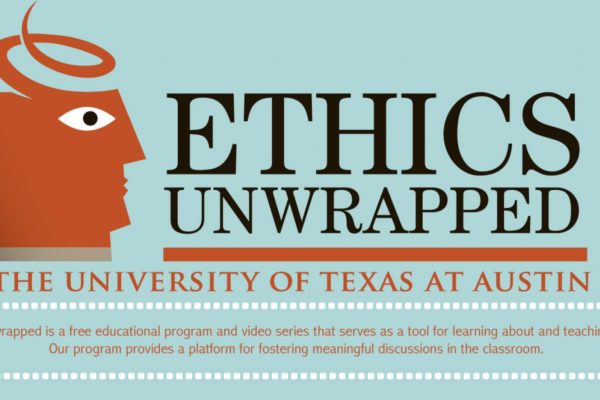“Ethics Unwrapped” is a free educational program created at UT Austin to help people navigate ethical challenges and be more successful.
Professors define ideas and students share examples in videos and animations about behavioral ethics, business ethics and basic ethics concepts.
These research-based videos are used by more than 500 colleges and universities around the world and tens of thousands of ethics learners.
Their latest video “Ethics & the Media: Propaganda” is a call to action for the public to educate themselves rather than rely on media to be aware.
“We were profoundly affected by ‘State of Deception: The Power of Nazi Propaganda,’ a recent exhibit at the Bullock Texas State History Museum, and made this video in response,” says Robert Prentice, professor of business law and business ethics and chair of the Department of Business, Government & Society at the McCombs School of Business.
“The message of ‘Ethics & the Media: Propaganda’ is threefold,” Prentice says. “First, propaganda is ubiquitous and dangerous. Second, the media is doing an inadequate job of policing propaganda in modern political campaigns and of informing the electorate regarding substantive policy issues. Third, it, therefore, becomes incumbent upon individuals to educate themselves so that they may vote in an informed way. Citizens must demand more of their candidates, of their media and of themselves.”
During the next month, “Ethics Unwrapped” will release “Ethics Defined,” a glossary of 51 short video clips that introduce and explain the fundamental ethical principles that enable civilized and peaceful coexistence. The glossary is intended as a tool to help individuals educate themselves and learn how to discern facts from fiction. The program hopes to increase ethical leadership in the community as well as thoughtful and productive discourse in our country and around the world.
“Ethics Unwrapped” is a free educational program from the Center for Leadership and Ethics at McCombs School of Business. The program is made possible by generous contributions from the Ethics at McCombs Advisory Council, the Bob and Ann Pratt endowment, the Teagle Foundation and the Provost’s Office at The University of Texas at Austin.




